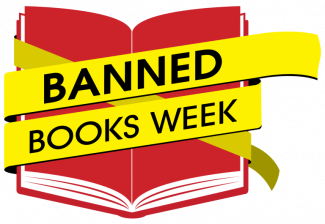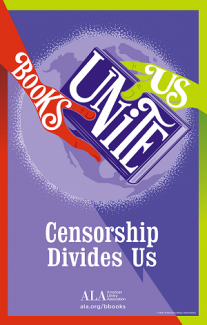
Johns Hopkins UniversityEst. 1876
America’s First Research University
Now Browsing:
Banned Books Week 2021: Books Unite Us, Censorship Divides Us

Banned Books Week (September 26 – October 2) is an annual event celebrating the freedom to read. Banned Books Week was launched in 1982 in response to a sudden surge in the number of challenges to books in schools, bookstores and libraries. Banned Books Week highlights the value of free and open access to information and brings together the entire book community — librarians, booksellers, publishers, journalists, teachers, and readers of all types — in shared support of the freedom to seek and to express ideas, even those some consider unorthodox or unpopular.
- via https://bannedbooksweek.org

Johns Hopkins University Press proudly supports this year's Banned Books Week theme: Books unite us, censorship divides us. Below is a sampling of just a few of the scholarly articles published in JHU Press journals that touch on this year's top 10 banned titles, as well as the issue at large. These resources will remain freely available for the next month.
Review of George, by Alex Gino
Deborah Stevenson
Bulletin of the Center for Children's Books, vol. 69 no. 2, 2015
Reflections on Fifty Years of The Bluest Eye
Stephanie Li
College Literature, vol. 47 no. 4, 2020
On Being a Banned Writer
Norma Klein
The Lion and the Unicorn, vol. 10, 1986
Review of Stamped: Racism, Antiracism, and You, by Jason Reynolds and Ibram X. Kendi
Janaka B. Lewis
Children's Literature Association Quarterly, vol. 45 no. 4, 2020

Banned from the Libraries?: Ovid's Books and Their Fate in the Exile Poetry
Barak Blum
American Journal of Philology, vol. 138 no. 3, 2017
Melinda's Closet: Trauma and the Queer Subtext of Laurie Halse Anderson's Speak
Don Latham
Children's Literature Association Quarterly, vol. 31 no. 4, 2006
Hidden in Plain Sight: Gay and Lesbian Books in Midwestern Public Libraries, 1900–1969
Joanne E. Passet
Library Trends, vol. 60 no. 4, 2012
Not Exactly: Intertextual Identities and Risky Laughter in Sherman Alexie’s The Absolutely True Diary of a Part-time Indian
Adrienne Kertzer
Children's Literature, vol. 40, 2012
Where is Finch's Landing? Rereading To Kill A Mockingbird As Moral Pedagogy
Simon Stow
Philosophy and Literature, vol. 45 no. 1, 2021
Using Literature To Teach Ethical Principles in Medicine: Of Mice and Men and the Concept of Duty
Edward E. Waldron
Literature and Medicine, vol. 7, 1988
Adolescence, Blackness, and the Politics of Respectability in Monster and The Hate U Give
Gabrielle Owen
The Lion and the Unicorn, vol. 43 no. 2, 2019
Books Cannot Be Killed by Fire: The German Freedom Library and the American Library of Nazi-Banned Books as Agents of Cultural Memory
Nikola von Merveldt
Library Trends, vol. 55 no. 3, 2007
Login to View & Leave Comments
Login to View & Leave Comments


